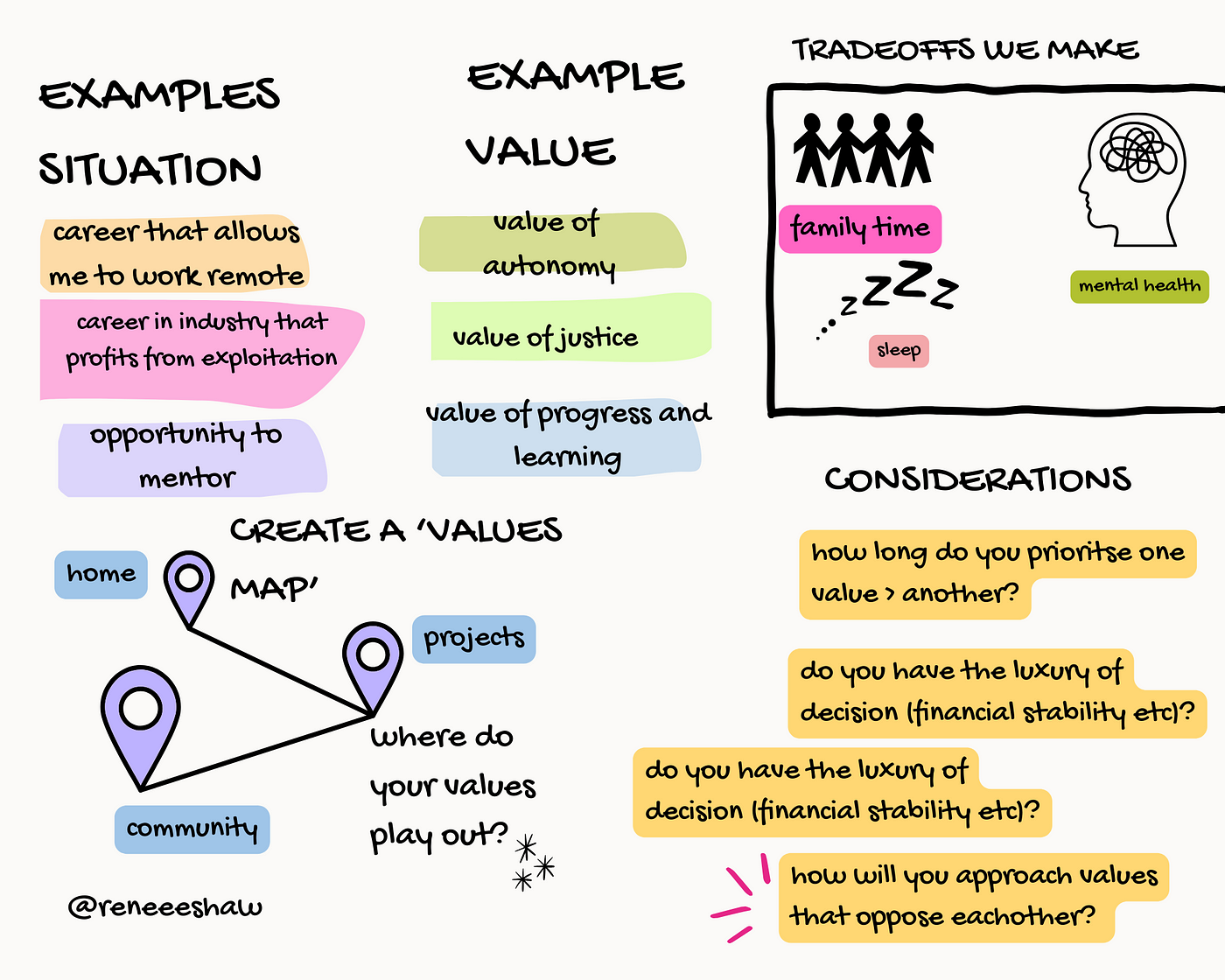How to Know What you Really Want
#learning #personal Tags: Medium Posts
How do you make big decisions? What if there was a way to ease the internal pains that come from making them?
Philosopher Jennifer Nagel argues, that consulting our core motivations cuts through confusion way better than simply weighing surface-level preferences.
Basically, things feel right or wrong depending on how well they align with who we really are.

Image by Author
How to check your values
With years spent on autopilot, it takes some serious self-reflection to reconnect with why we do what we do.
What this would look like in the wild- for me, I’d cross-reference my options against my deepest personal values, things like justice, autonomy, progress and human kindness.
Nagel points out some key steps, like journaling, meditation, or just talking like a human about how we actually feel, with close friends, to help uncover the origins behind our default habits and beliefs around what we think we want in life.
Once back in touch with those intrinsic drivers — creativity, mastery, being helpful, etc. — we can way more easily evaluate the choices that would allow us to honour those motivations daily. (As I write this I’m mindful of the immense privilege of being “choosy”- to say no to careers, relationships etc that don’t align is a marker of financial and psychological safety).
Bridging the Gap Between Values and Action
Embodying our values in new, enduring habits takes an intentional process.
Nagel outlines it neatly- “First fully identify what principles actually light you up and compel you deep down. Then map specific behaviours and actions that would let you literally live those values in your day-to-day — like committing to volunteer if service matters most to you”.
Finally comes the tough part, making these new patterns stick.
Nagel stresses analysing why past well-intentioned changes fell apart, rather than vaguely blaming failures on “lack of willpower.” Name the precise obstacles that sabotaged you before so they can be systematically addressed.
Essentially, by first clearly examining our core motivations, then intentionally linking aligned actions, and finally shifting behaviours via this conscious, targeted process, we anchor positive changes to our deepest values.
Decisions, on “easy mode”
Say you have a secure office job that reliably pays the bills, but you increasingly realise you find very little fulfilment there compared to how much you enjoy designing new products or ideas nights and weekends.
After sincere self-examination, you recognise that creativity, mastery, and building things purely from imagination — not shitty OKRs! Are what genuinely seem to drive you at a core level. And you notice a strong pull toward the autonomy of working for yourself, not a company.
It (obviously) takes strategic financial planning to mitigate risks later when you finally muster the courage to fully shift careers to launching your own venture. Nagel would likely argue that keeping your intrinsic motivations around purposeful creating firmly in sight dramatically simplifies your decision-making here.
Though very real obstacles may exist to immediately bridging over 100% to more meaningful work, just systematically and incrementally addressing those barriers enables gradual progress over time toward what fundamentally reflects your passions.
In a nutshell, the key then becomes continually evaluating career options and the next steps against your inner compass. What pathways permit genuinely honouring your values despite uncertainty, sacrifice, and long transitions?
Consistently tuning into your core motivations makes apparent the “right” nuanced blend of purpose-driven work for you.
As to what to do when your values are at odds with one another? That’s probably for another time.
Discussion